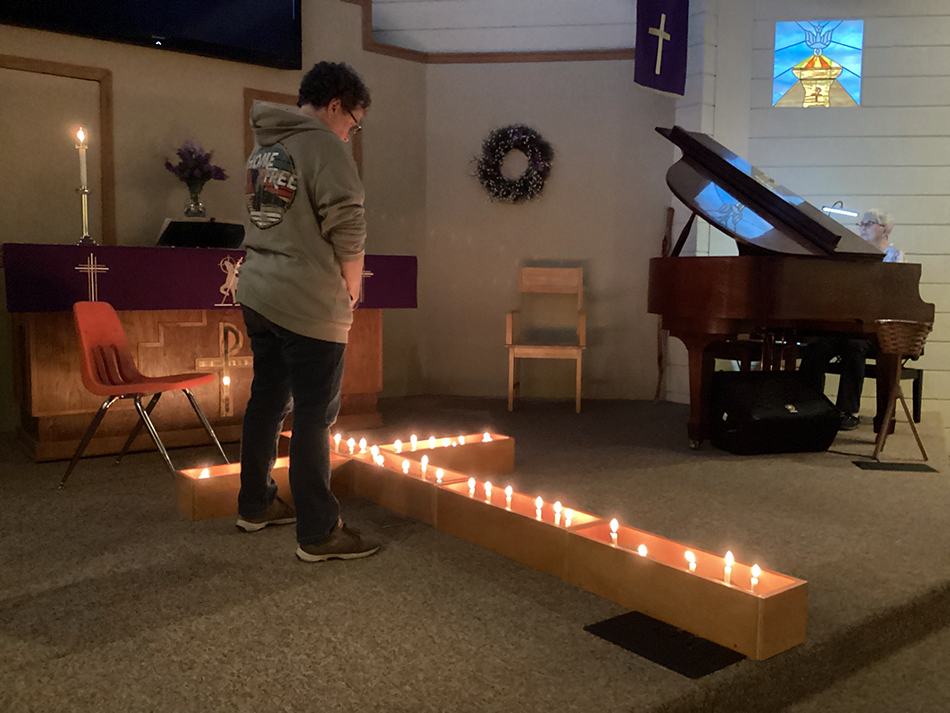Sunday, November 22, 2015
After Pentecost
Proper 29
Year B
Old Testament Daniel 7:9–10, 13–14
New Testament Revelation 1:4b–8
Gospel John 18:33–37[1]
Like many Sundays, it seems like there is little to no relation between the readings. In Daniel we have descriptions that might be relating to a kingdom, and it is ruler. Certainly if this is describing the courts of a kingdom, it is not like anything seen here on earth. The description includes at least two thrones and an interesting description of an “ancient one”. This description is often where people see God as an old Man of white hair and flowing robes.
In verse 5 of the Revelation text, we hear that Jesus Christ is ruler over the kings of the earth. This is the set up for our John text where Jesus is before Pilate. Out of character, of who we may perceive Jesus to be throughout most of scripture, Jesus answers fairly plainly to Pilate.
“My kingdom is not from this world. If my kingdom were from this world.”[2] This is where Jesus goes to make it clear to Pilate that this is the case. If it were from this world, then this handover by the Jews would not have been so peaceful. Peaceful it was, at least on His part and for the most part. This is further evidence, at least in the mind of the Jews, that Jesus is not the Messiah, or at least the Messiah they are waiting for.
It is really easy to look back today and blame the Jews for the killing of Jesus. There are all sorts of scripture from the Hebrew Bible, what we call the Old Testament, that points to Jesus as being the Messiah. It is not that the scripture pointed by name, but none the less points to Him. Well, that was easy, the Jews got it all wrong and took Jesus down for it. Nice and clean we blame someone else for the problem.
As I have spoken of in Bible study, when we read from the Old Testament, first we need to read as if we did not have the New Testament. This is helpful to see through lenses that are not shaped by Jesus. The Jews in biblical times did not have the same knowledge that we do today, because of the New Testament. Next we can read the scripture in the light of Christ.
This king, Jesus of Nazareth, did not fit the mold of what the Jews expected for a King of the Jews. Although we believe that kings are suppose to be just, fair to the people and provide for their needs and protection, that is not what kings did in biblical times and sometimes even still today.
The Jews were looking for a king, a messiah, a deliverer from the oppression they were experiencing under roman occupation. Delivery from other kings who were not just, who did not care for the people or protect their people. In their eyes, the king of the Jews would conquer through force, all the oppressors.
When you look at the text from Daniel and hear “his throne was fiery flames, and its wheels were burning fire.” [3] Does that sound like a king who brings peace? How can the Prince of Peace be the Messiah then?
Here is the text that our lectionary skips today. It is from verses 11 and 12 of Daniel 7. “I watched then because of the noise of the arrogant words that the horn was speaking. And as I watched, the beast was put to death, and its body destroyed and given over to be burned with fire. 12 As for the rest of the beasts, their dominion was taken away, but their lives were prolonged for a season and a time.”[4] Now that sounds like a king that the Jews were looking for. This king would destroy their enemies.
Jesus brings peace not through destruction but through peace. Peace begets peace. That being said, how Jesus brings peace to the world was peaceful on his part and violent on the part of others. Christ is king above all other kings. He gave His life, so that we may have life.
We come to a close of our church year today. The entire year is about making Christ known in the world. The making of the invisible God, now visible. To show the connection of Jesus of Nazareth to the scriptures of the Hebrew Bible. Hear the stories of Jesus teaching a new way, not one of violence but of peace. To gather as followers of “The Way”, Christians and learn of what God asks Jesus to do and what Jesus does willing for us.
Finally, to hear Jesus the Christ, the Messiah proclaim His kingship for our sake. He proclaims that His kingdom is not of this world and is put to death for this. It is in His death we are baptized and it is in His defeat of death upon His resurrection, that we have hope in the promise of eternal life in the Kingdom of Jesus, in heaven.
We are the believers who can proclaim from the tops of mountains for all to hear, “Christ is King”! Amen, Amen!
[1] Revised Common Lectionary (Bellingham, WA: Logos Bible Software, 2009).
[2] The Holy Bible: New Revised Standard Version (Nashville: Thomas Nelson Publishers, 1989), Jn 18:36.
[3] The Holy Bible: New Revised Standard Version (Nashville: Thomas Nelson Publishers, 1989), Da 7:9.
[4] The Holy Bible: New Revised Standard Version (Nashville: Thomas Nelson Publishers, 1989), Da 7:11–12.
